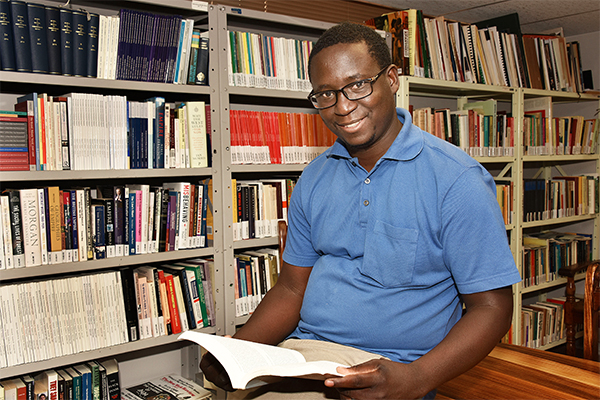Latest News Archive
Please select Category, Year, and then Month to display items
29 March 2021
|
Story Lacea Loader
![]()
1. Its support of and confidence in the leadership of the Rector and Vice-Chancellor of the UFS, Prof Francis Petersen and his team, and duly recognises the efforts and results achieved at the University during the challenges posed by the COVID-19 pandemic, as well as the current nationwide student protest on the payment of student debt.
2. In this context, the Council also distances itself and deplores the statements made by the leadership of the
Institutional Student Representative Council (ISRC), on national television on Monday 15 March 2021, as it pertained to the demand for the immediate resignation of the Rector and Vice-Chancellor, and the statements pertaining to the Chancellor, Prof Bonang Mohale, and Chairperson of the Council, Dr Willem Louw. The Council notes that Mr Katleho Lechoo, President of the ISRC subsequently retracted the utterances.
3. The Council strongly affirms its confidence in the relationship between the leadership of the UFS and the ISRC and expresses its appreciation for the University leadership’s commitment to continuously engage with students about matters of concern to them. The Council furthermore encourages positive and constructive engagement by the ISRC with the University leadership, as this contributes to shared-understanding of the challenges faced by the South African higher education sector and the governance of the UFS.
Land a fertile field for historians
2017-12-25

Dr Admire Mseba, historian and researcher in the International Studies Group (ISG).
Photo: Charl Devenish
The use of land and the economics of Southern Africa at present is a contentious subject at almost every level of society. A historian and researcher who revels in happenings in these two areas, is Dr Admire Mseba, a postdoctoral research fellow in the International Studies Group (ISG) at the UFS.
Dr Mseba grew up in the Mberengwa region in southern Zimbabwe, known for cattle farming and mineral mining. While at the University of Zimbabwe, he became interested in economic history and archaeology, and completed his PhD at the University of Iowa in the USA. During his time there, Dr Mseba also became passionate about environmental history.
A historian's ability to think and engage critically on diverse subjects drew Dr Mseba to his field. Currently, he is busy with three research projects. Firstly, he is working on a book on social relations, about access to land in Zimbabwe. He is also examining regional and national efforts to control migratory pests during the 20th century, in particular, the red locust. In collaboration with a colleague at the ISG, Dr Mseba is also researching monetary systems in central Africa, covering the present-day countries of Zimbabwe, Malawi, and Zambia.
Dr Mseba believes future research opportunities in the domains of economic and environmental history abound. For one, the land question has been very topical in Zimbabwe for more than a decade—as it is now in South Africa—and needs more scrutiny. Regarding agrarian pestilences, he indicates the recent phenomenon of armyworm invasion. “There are so many opportunities for historians to investigate. There are so many ways to think about these things and trying to put it in perspective.”